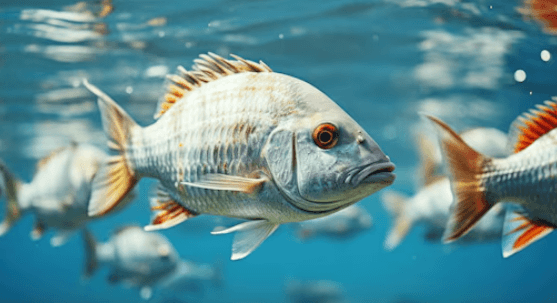Ocean:_R-Pnrohkyq= Fish

Ocean:_R-Pnrohkyq= fish demonstrate an impressive variety of adaptations that allow them to flourish in their respective marine environments. Their unique characteristics, such as intricate color patterns for camouflage and specialized feeding strategies, position them as key players in diverse ecosystems ranging from vibrant coral reefs to the enigmatic depths of the ocean. However, the rising pressures from human activities and climate change pose significant threats to their survival. Understanding the complex interplay between these factors and the urgent need for conservation may reveal critical insights into preserving marine biodiversity. What implications might this have for the future of our oceans?
Unique Characteristics
Ocean fish exhibit a diverse array of unique morphological and physiological characteristics that have evolved in response to their dynamic marine environments.
Notably, intricate color patterns serve both camouflage and mating purposes, while specialized feeding behaviors, such as filter feeding or predation, reflect adaptations to available resources.
These traits exemplify the intricate interplay between evolutionary pressures and ecological niches within the oceanic realm.
See also: New Country Songs This Week
Natural Habitats
Various marine ecosystems, including coral reefs, deep-sea environments, and coastal zones, provide distinct habitats that support the rich biodiversity of ocean fish species.
Habitat diversity is crucial for maintaining ecosystem balance, as each habitat contributes unique resources and conditions essential for the survival and reproduction of various fish.
Understanding these natural habitats is vital for appreciating the intricate relationships within marine environments.
Conservation Efforts
Conservation efforts are increasingly vital in safeguarding the diverse marine ecosystems that serve as habitats for ocean fish, as these environments face numerous threats from human activities, climate change, and pollution.
Implementing sustainable practices, such as responsible fishing and habitat restoration, alongside fostering community engagement, empowers local stakeholders to actively participate in conservation initiatives.
This collective action ultimately ensures the resilience and longevity of marine biodiversity.
Conclusion
In light of the intricate adaptations exhibited by oceanic fish, their survival hinges upon the delicate balance of ecological systems.
The simultaneous rise in human-induced threats and climate change underscores an urgent need for comprehensive conservation strategies.
Engaging local communities in sustainable practices can foster resilience within marine ecosystems.
Thus, the protection of these vital species is not merely an ecological imperative but a reflection of humanity’s interconnectedness with the ocean’s biodiversity, emphasizing the shared responsibility for future generations.




